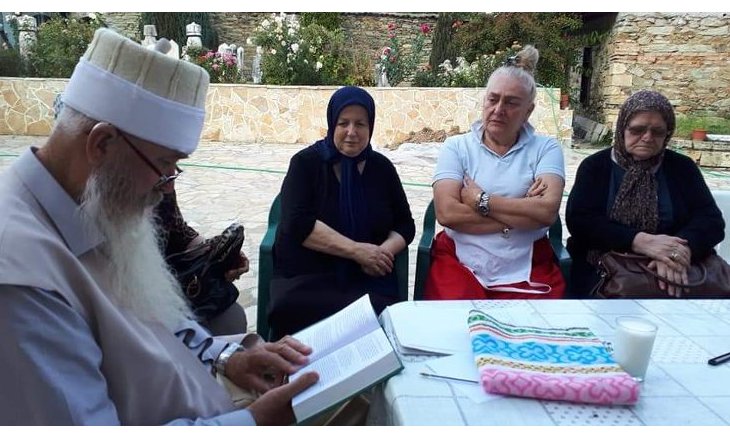Ottoman-era Bektashi tekke in North Macedonia faces threats
Visitors of a Bektashi tekke in the North Macedonian town of Tetova have been subject to threats by Islamists, who had previously occupied the religious facility and transformed it into a Sunni mosque.
Sadık Güleç / Duvar English
North Macedonia and Albania are home to the rich cultural heritage of the heterodox Bektashi-Alevi faith, the oldest traces of which date back centuries to Ottoman times. But visitors of one Bektashi tekke (lodge or monastery) in the North Macedonian town of Tetova have been subject to threats from Islamists, who had previously occupied the religious facility and transformed it into a Sunni mosque, according to a local writer who spoke to Gazete Duvar.
Tetova's Harabati Baba Tekke has a 500-year history. Members of the Bektashi-Alevi faith had used it as a place of worship until 1945 when it was converted into a museum. Throughout Yugoslavian times, the building and its facilities were well protected while it held a museum status. In 1994, following the collapse of Yugoslavia, the tekke began to be used once again by Bektashis for religious purposes.
Yet rising religious and and ethnic tensions in the Balkans during the late 1990's did not spare the tekke. Saudi-supported Sunni groups emerged in the region. In 2002, Islamists kicked out Bektashi worshippers from the tekke and began to perform prayers there, installing speakers that broadcasted the Islamic call to prayer. In 2010, a significant part of the building was burned in what was a suspected arson. Still, Bektashis started using it again for worship, leading to confrontations with the Islamists who had converted it into a mosque.

While the Bektashi faith is not officially recognized by North Macedonia, the Islamic Union of Macedonia is and harbors strong ties with Turkey and Saudi Arabia. In 2011, that group, along with the Turkish Cooperation and Coordination Agency (TİKA) - a agency of the Turkish government - and the Macedonian government signed an agreement to restore the tekke. Local Bektashis saw this as an attempt to erase the building of its legacy.
Tourists are threatened, local journalist claims
Ayhan Aydın, a Tetova-based writer, told Gazete Duvar that a member of the Islamic Union of Macedonia, who considers himself a guardian of the site, routinely threatens tourists and Bektashis who visit the area. Aydın said that on a recent visit to the tekke with a group of visitors from Turkey, the man approached him, threatened him with violence and said that he would report him to the Turkish Consulate.
Ali Kenaroğlu, a deputy from theleft-wing, pro-Kurdish People's Democratic Party (HDP), reportedlysubmitted a parliamentary question regarding the issue of theHarabati Baba tekke, specifically questioning the role of TİKA inthe affair, requesting a response from Turkey's Ministry of Cultureand Tourism.
